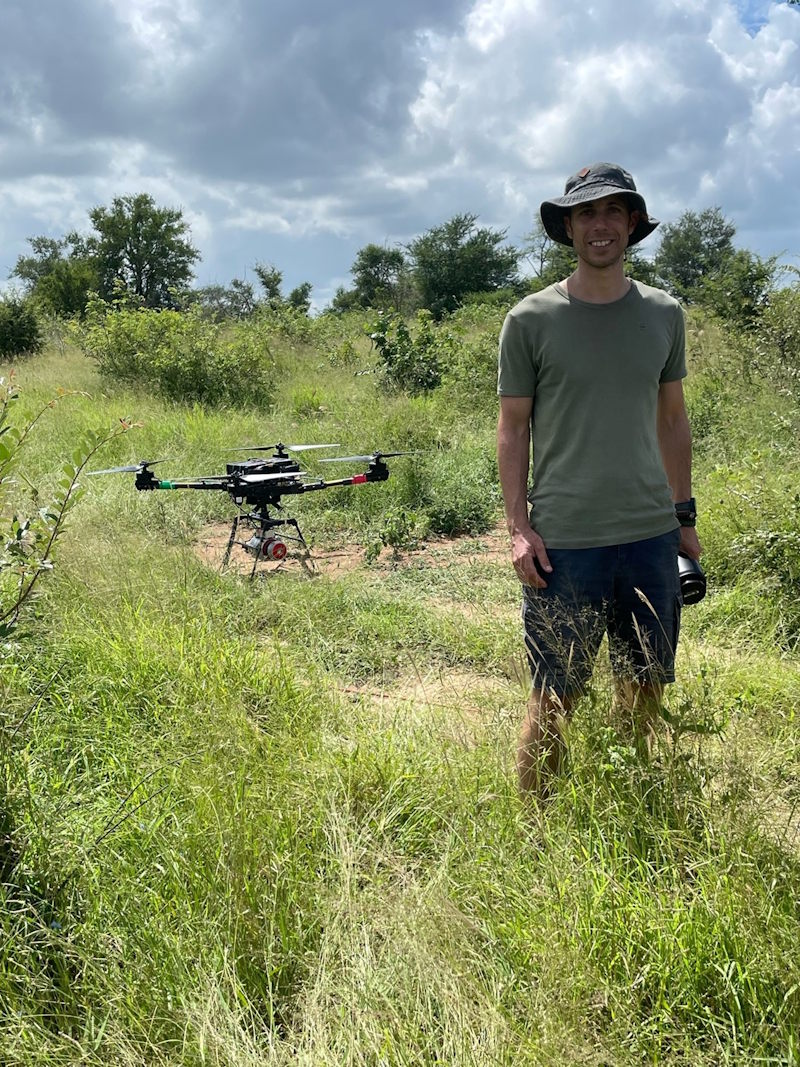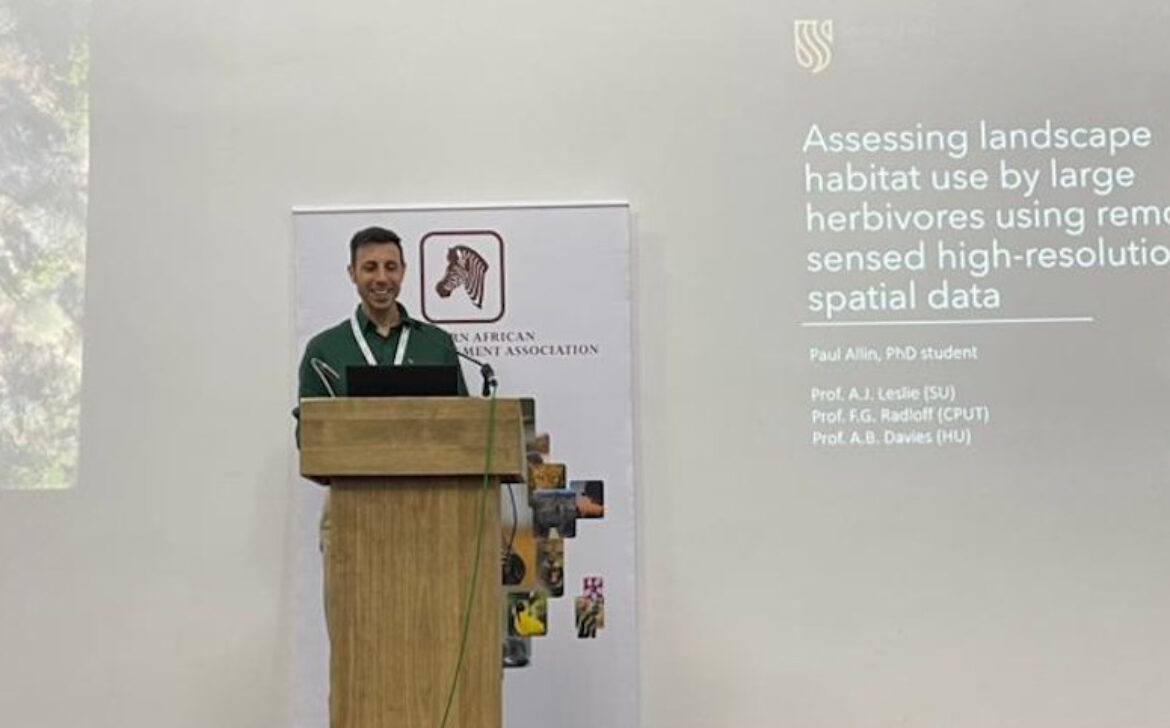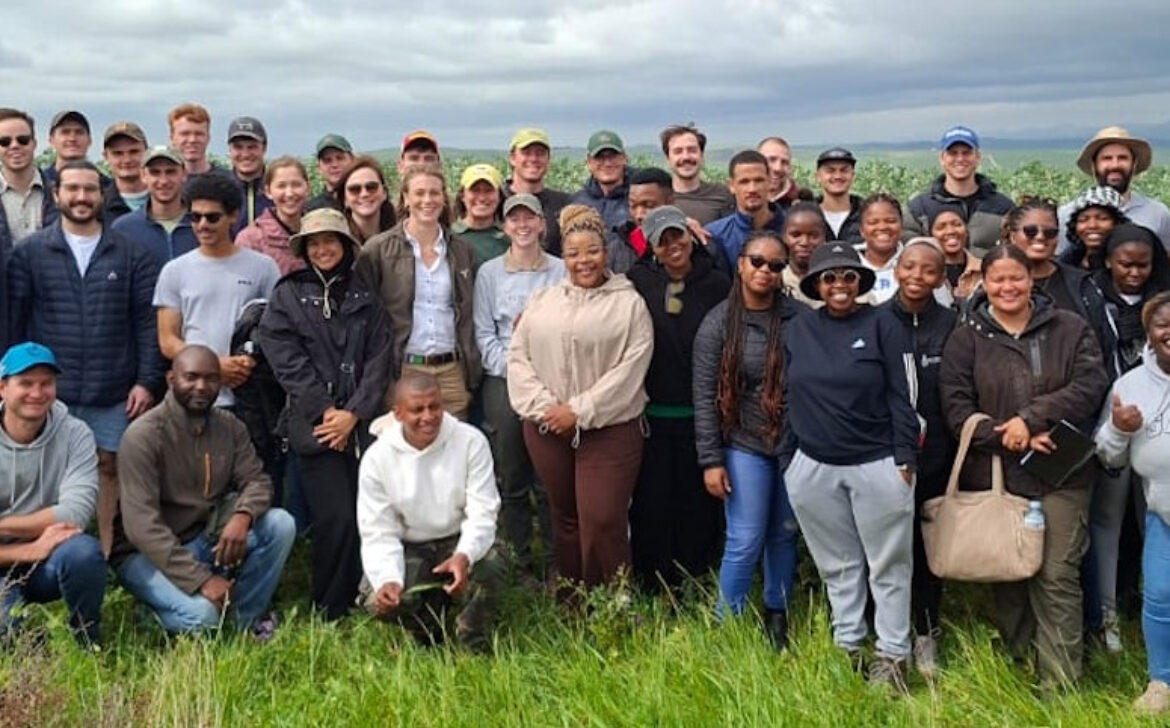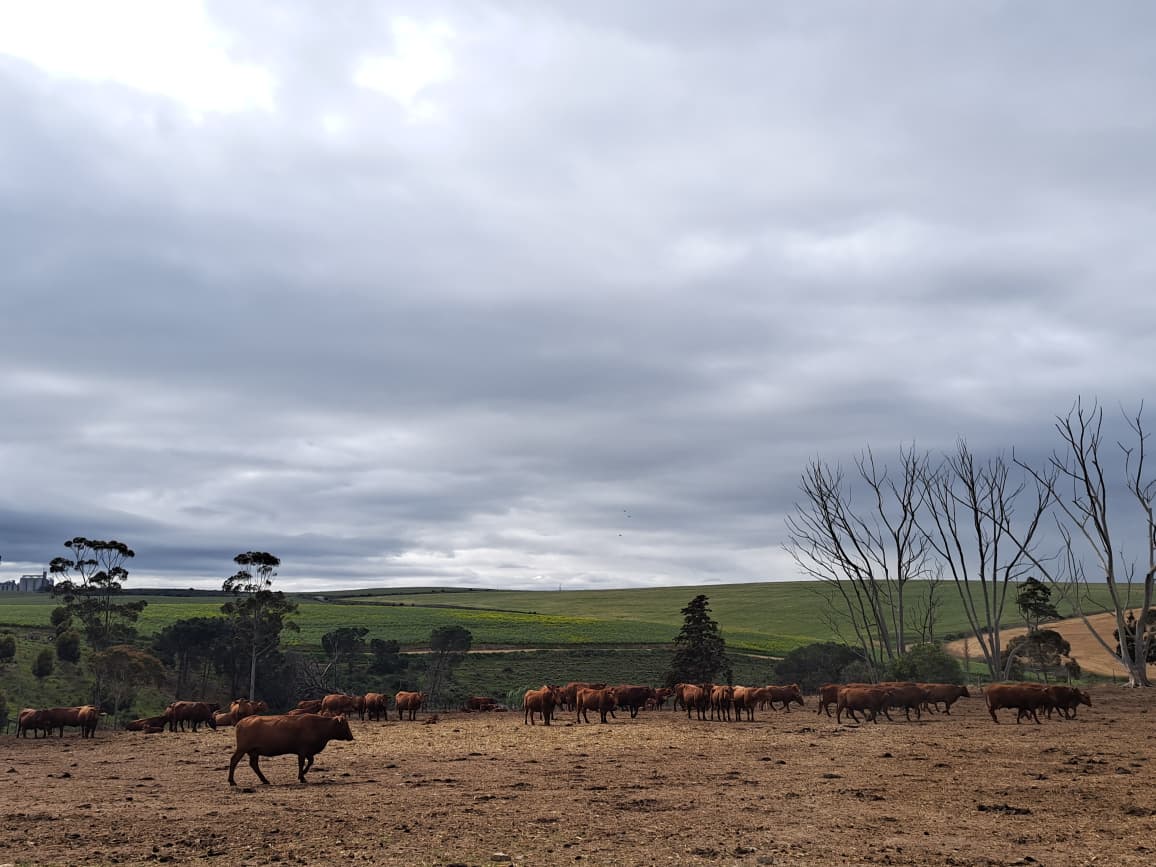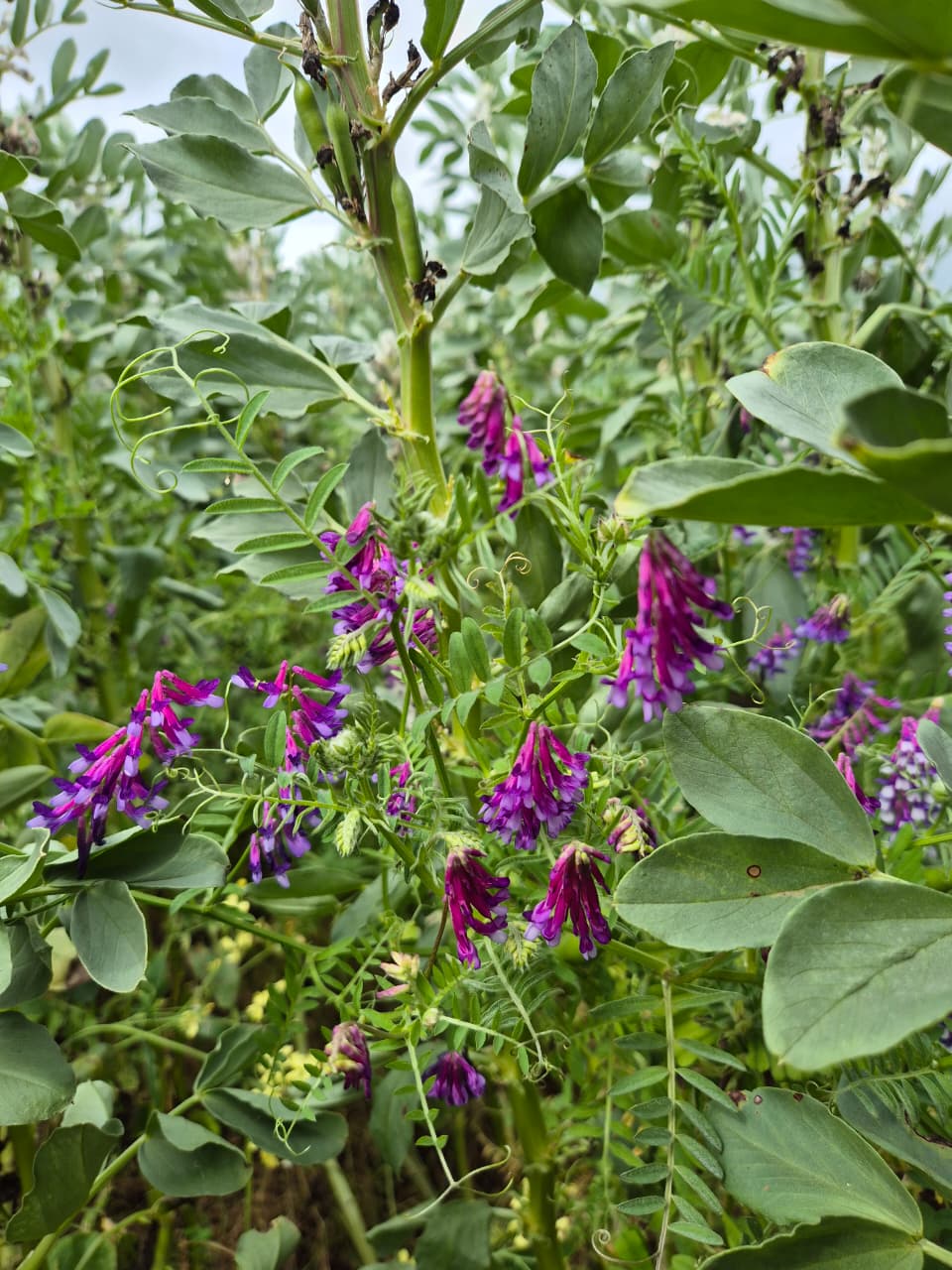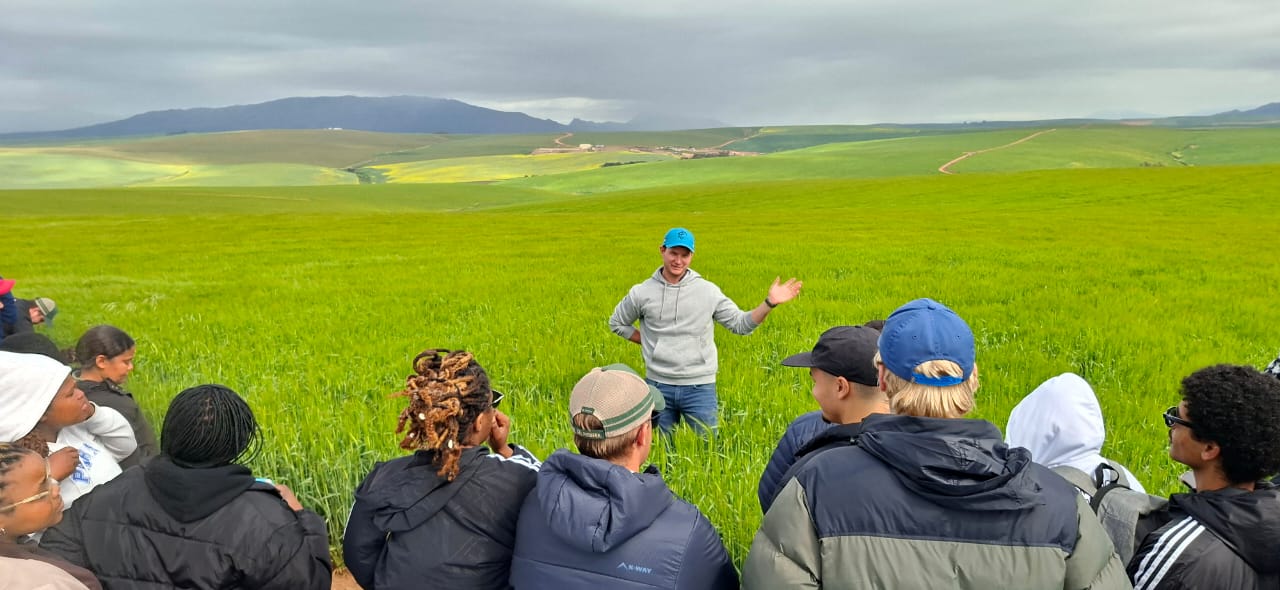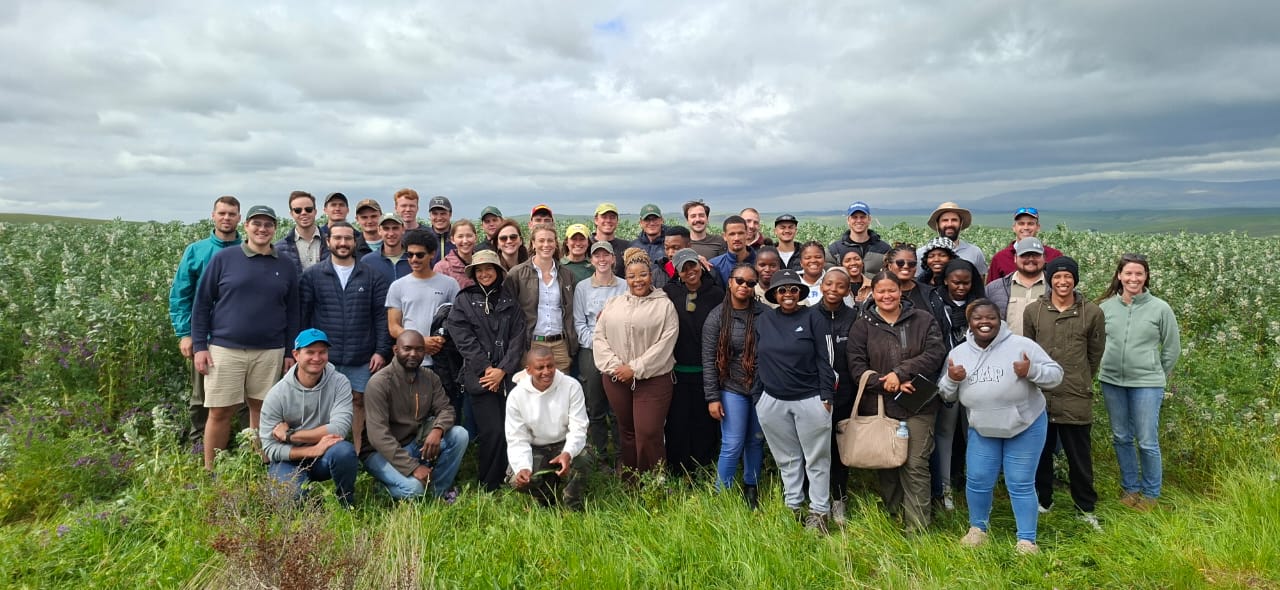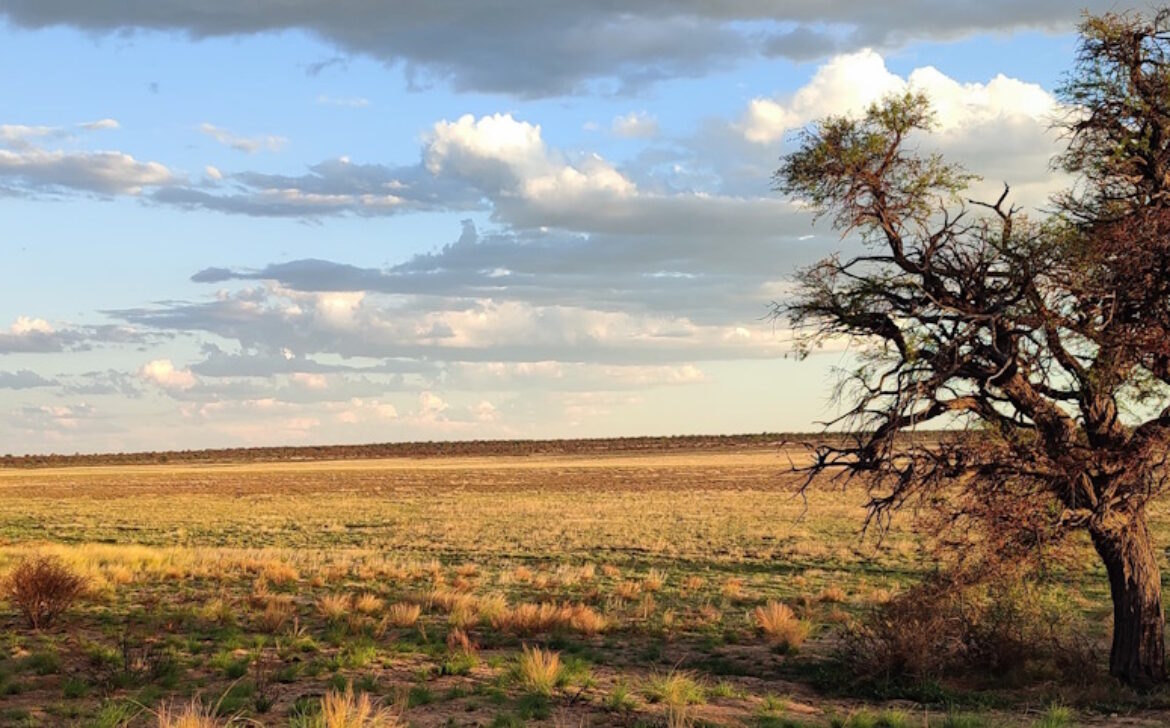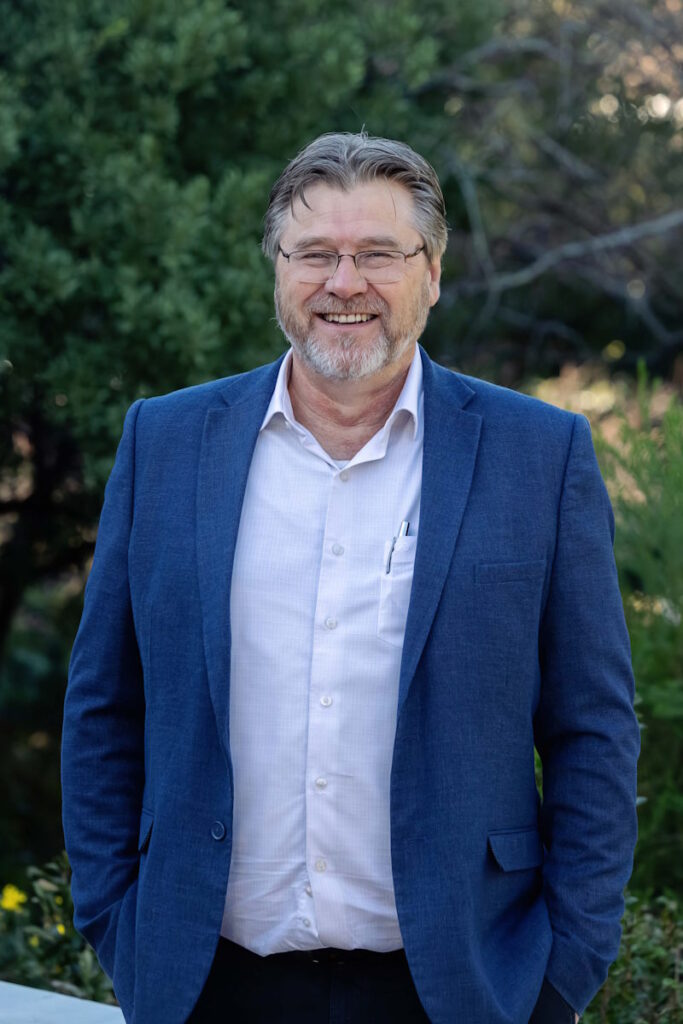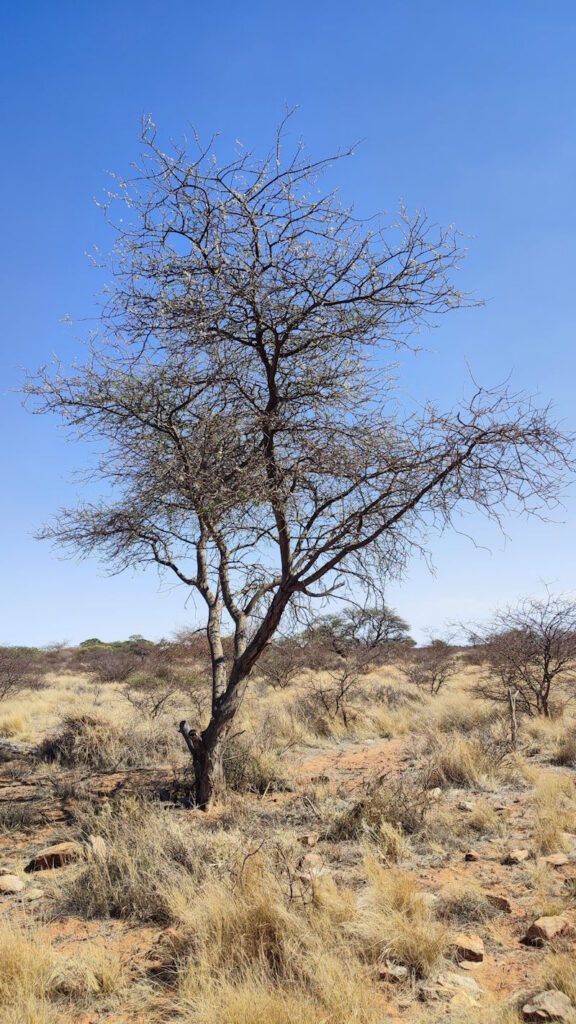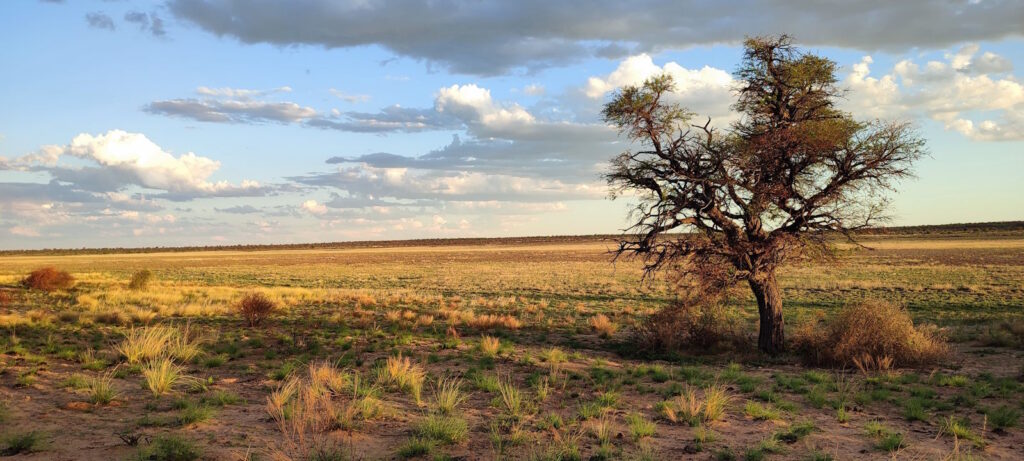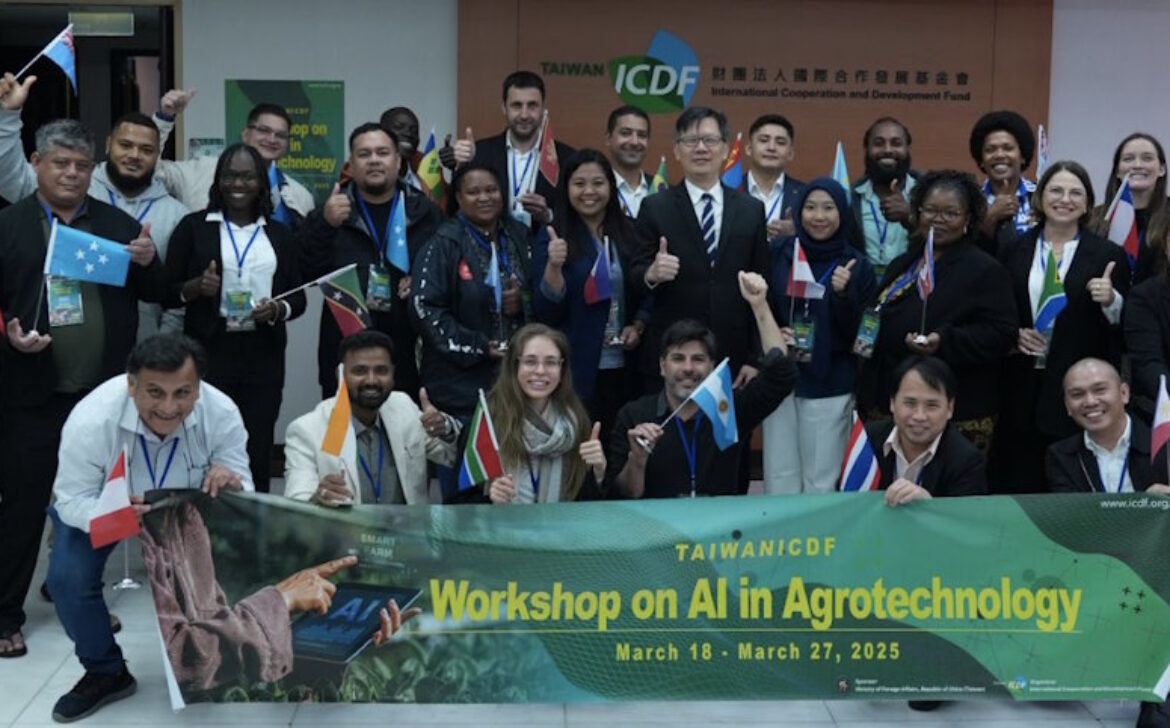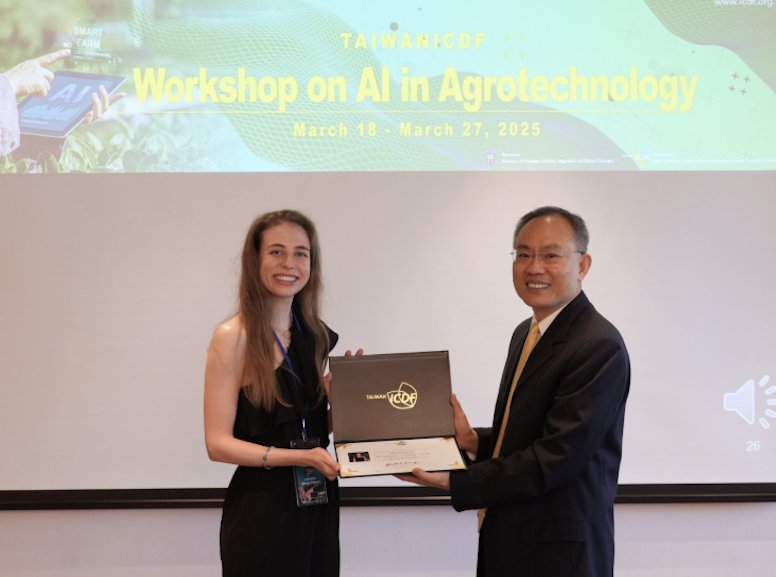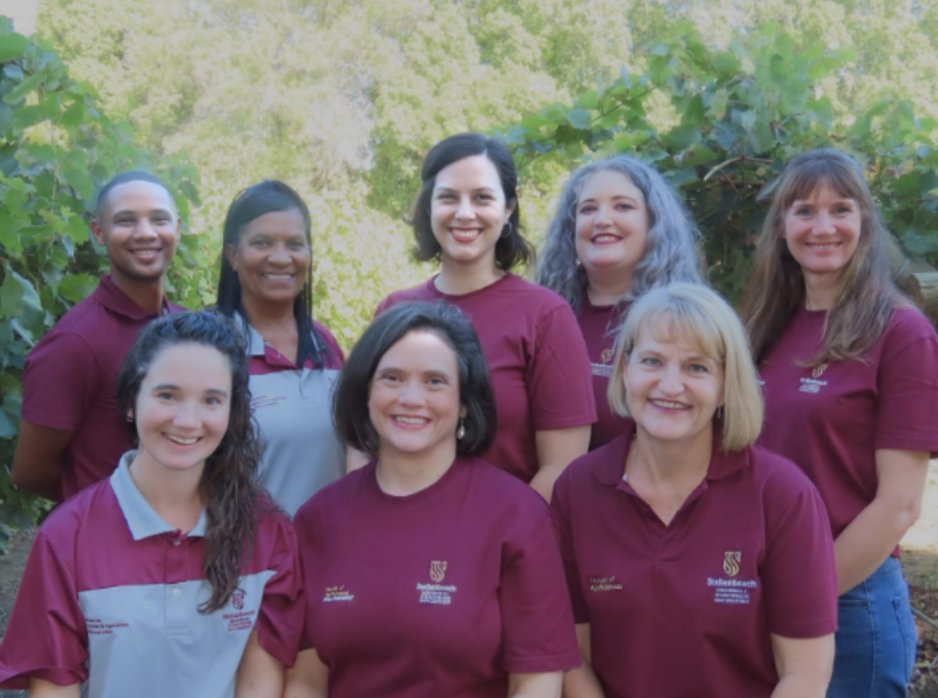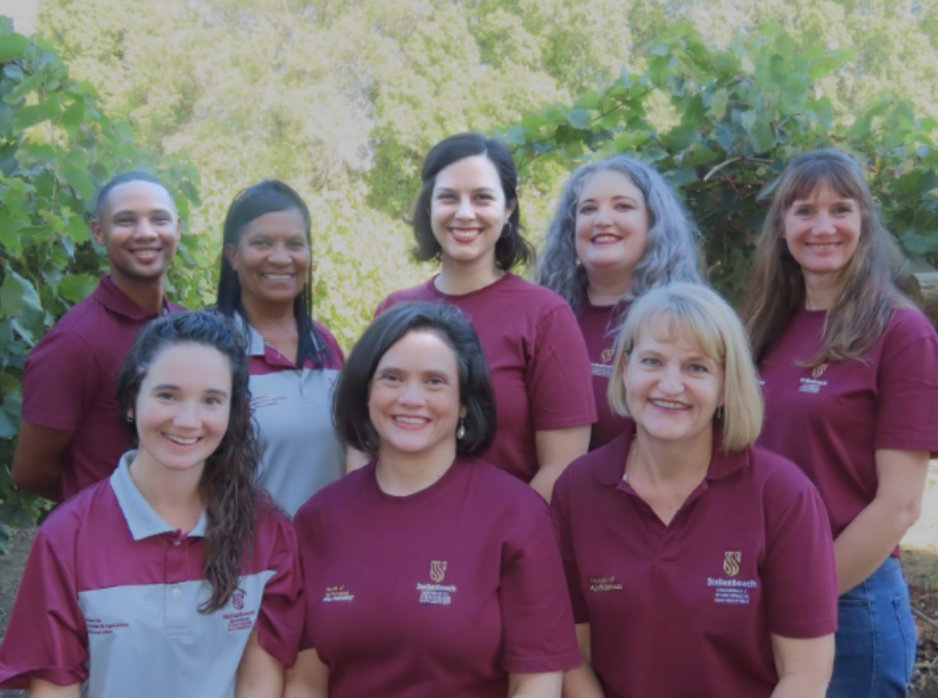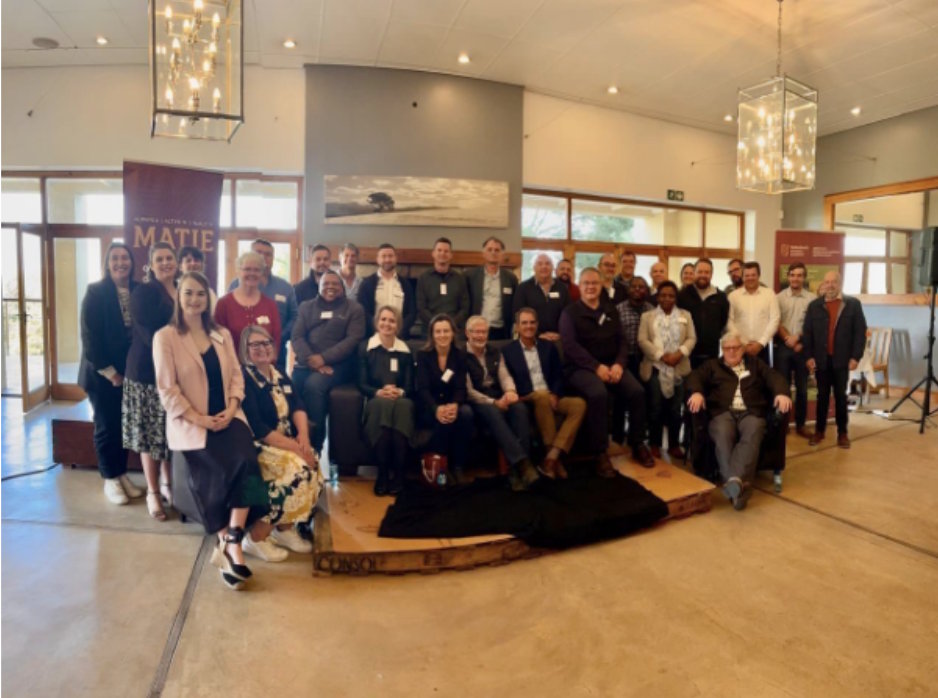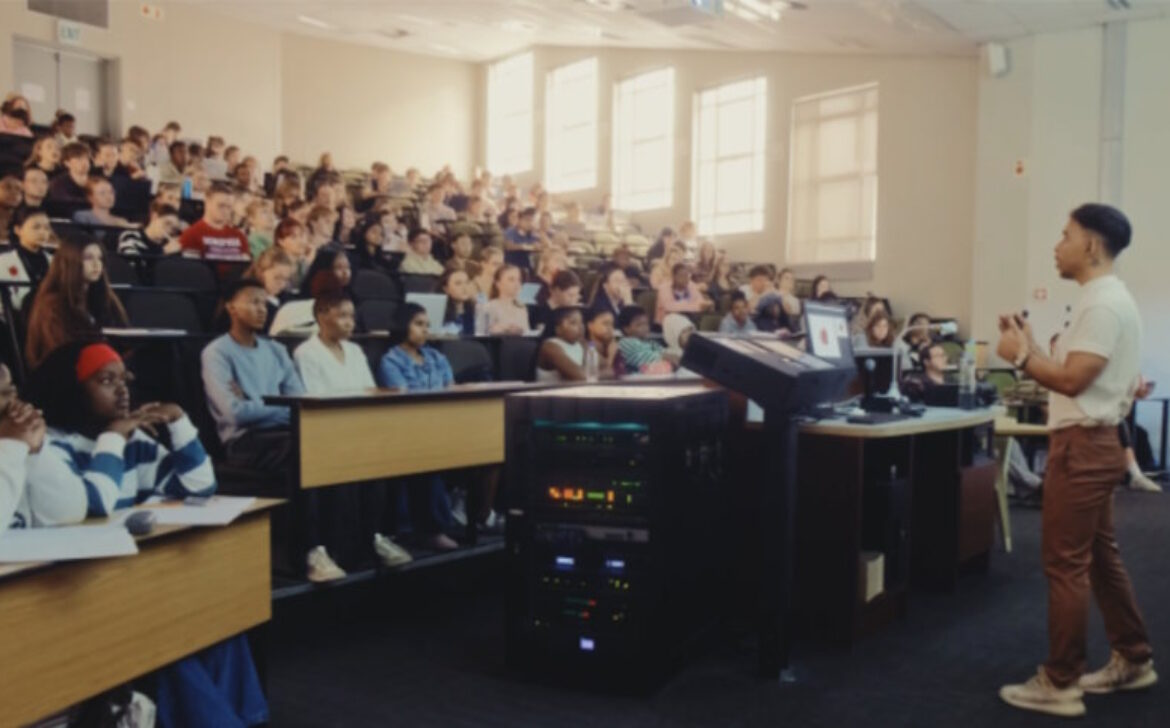The Department of Genetics at Stellenbosch University is home to a vibrant and diverse academic community of 23 staff members whose research spans the full spectrum of genetics – from plant and animal genetics to human health. Closely integrated into this ecosystem is the Institute for Plant Biotechnology and Breeding (IPBB), a leading centre for innovation in molecular biology, genetic engineering, and applied breeding. Together, these groups contribute to a rich, interdisciplinary research environment with a significant global reach.
To showcase the breadth of research being conducted, the department recently curated highlights from the work of several academics, reflecting both the depth of their individual research programmes and their international impact and collaborations.
Prof Anna-Maria Botha-Oberholster: Plant Genomics and International Collaboration
Prof Anna-Maria Botha-Oberholster, a full professor in the Department of Genetics, is a highly accomplished researcher whose work in plant genomics bridges fundamental science and practical agricultural applications. A B-rated scientist by the NRF, she is one of the department’s most cited academics, with over 5,800 citations, an h-index of 39, and more than 150 peer-reviewed publications—excluding patents, reports, and book chapters.
In 2025, she co-authored the article “Evaluating long-read assemblers to assemble several Aphididae genomes”, published in Briefings in Bioinformatics, contributing valuable genomic tools for agriculturally important aphid species. She also co-authored two high-impact review papers: “Russian wheat aphid: A model for genomic plasticity and a challenge to breeders” and “Unlocking Wheat Drought Tolerance: The Synergy of Omics Data and Computational Intelligence.”
Prof Botha-Oberholster is the South African partner in the EU-funded NATUREBIOPROMO project under the Biodiversa+ and Water4All initiatives. This collaboration includes researchers from Portugal, Brazil, Italy, the Czech Republic, and South Africa, and seeks nature-based biotechnological solutions to reduce pesticide use and improve crop resilience through beneficial microbiomes and bioactives.
She leads a dynamic research team including Dr Hendrik Swiegers (postdoctoral fellow), Dr F Burger (bioinformatician/technical officer), and a cohort of postgraduate students. Her group focuses on host-pathogen genomics, functional biology, and systems-level approaches to plant defence.
Prof James Lloyd: Engineering Future-Ready Crops
Prof James Lloyd, a C-rated scientist and associate professor at IPBB, is a leading figure in plant metabolic engineering, particularly starch metabolism. With more than 3,900 citations, an h-index of 28, and over 43 publications, his work significantly shapes both theoretical and applied plant biotechnology.
His most recent article, accepted in Biotechnology Journal, is titled “Simultaneous Repression of GLUCAN WATER DIKINASE 1 and STARCH BRANCHING ENZYME 1 in Potato Tubers Leads to Starch with Increased Amylose and Novel Industrial Properties.” The study presents a gene-silencing approach that improves starch quality for industrial use.
Prof Lloyd was awarded a three-year NRF Rated Researcher Grant for his project “Making potatoes resistant to virus attack and healthier to eat using genome editing.” This CRISPR-based research, a collaboration with Dr Manuela Campa, Prof Johan Burger (SU), and Dr Zanele Mdodane (NWU), targets both virus resistance and starch digestibility to reduce risks associated with type II diabetes.
Prof Aletta Bester-van der Merwe: Genetics for Ocean Conservation
Prof Aletta Bester-van der Merwe, associate professor, plays a key role in marine conservation genetics, particularly in elasmobranch (shark and ray) population studies. With an h-index of 22, i10-index of 40, and over 70 publications, her contributions have helped shape marine molecular ecology in the region.
She is a principal researcher in the international COEXISTENCE project (2025–2028), investigating socio-ecological conflicts between fisheries and marine megafauna in the South West Indian Ocean. Her work focuses on genetic connectivity in the Mozambique Channel and aims to inform conservation policy through genomics.
Prof Bester-van der Merwe leads a strong research group including Dr Juliana Klein and Dr Michaela van Staden, both postdoctoral fellows. Over her 13 years as principal investigator, she has supervised and co-supervised 10 PhD, 15 MSc, and 25 Honours students.
Dr Nathaniel McGregor: Global Psychiatry and Genomic Insight
Dr Nathaniel McGregor, a senior lecturer, is advancing global psychiatric genetics through international collaborations. With over 2,200 citations, an h-index of 17, and more than 21 publications, his work is gaining notable traction.
In 2025, he co-authored “New Genomics Discoveries Across the Bipolar Disorder Spectrum Implicate Neurobiological and Developmental Pathways” in Biological Psychiatry, which highlights emerging genomic signals across bipolar subtypes and explores previously uncharacterised neurodevelopmental pathways. He also contributed to a landmark Nature Genetics study titled “Genome-wide analyses identify 30 loci associated with obsessive–compulsive disorder (OCD),” a meta-analysis of over 53,000 OCD cases that identified significant risk loci and implicated key neuronal pathways.
Together, these studies expand the global understanding of complex psychiatric disorders and underscore Dr McGregor’s key role in international genomics consortia.
Dr Christell van der Vyver: Sugarcane Innovation for the Future
Dr Christell van der Vyver, lecturer and C2-rated scientist, is contributing to South Africa’s biotechnology industry, particularly in sugarcane improvement. With over 800 citations, an h-index of 16, and more than 30 publications, she is driving innovation in applied plant biotechnology.
Her recent projects include a two-year contract with ABF SUGAR (Pty) Ltd to develop genetically modified sugarcane lines resistant to the yellow sugarcane aphid, and a South African Sugar Association (SASA) funded project establishing gene editing technologies for sugarcane.
In 2025, she published “Comparative Transcriptomic Analysis of AtBBX29 Transgenic and Wild Type Sugarcane Exposed to Drought Stress” in Physiologia Plantarum, and an invited review in In Vitro Cellular & Developmental Biology – Plant titled “Sugarcane (Saccharum spp. hybrids) Biotechnology Research in South Africa”, highlighting South Africa’s biotechnology trajectory in sugarcane.
Dr Marlon-Schylor Le Roux: AI-Driven Agriculture for a Changing Climate
Dr Marlon-Schylor Le Roux, a lecturer and emerging researcher, is gaining recognition for his work combining molecular biology, artificial intelligence, and sustainable agriculture. With over 100 citations and growing, he is part of a new generation of researchers leveraging technology to address food security.
He co-authored “Russian wheat aphid: A model for genomic plasticity and a challenge to breeders”, and led “Unlocking Wheat Drought Tolerance: The Synergy of Omics Data and Computational Intelligence”, both published in 2025. His research promotes AI-driven solutions to climate-related crop stress.
Dr Le Roux also holds three competitive research grants, including support from the DSI High-End Infrastructure Programme, an NRF Thuthuka grant, and postdoctoral funding enabling the appointment of Dr Nadia Fisher-Smith. His research programme is focused on CRISPR genome editing and AI-powered phenotyping for stress-resilient crops.
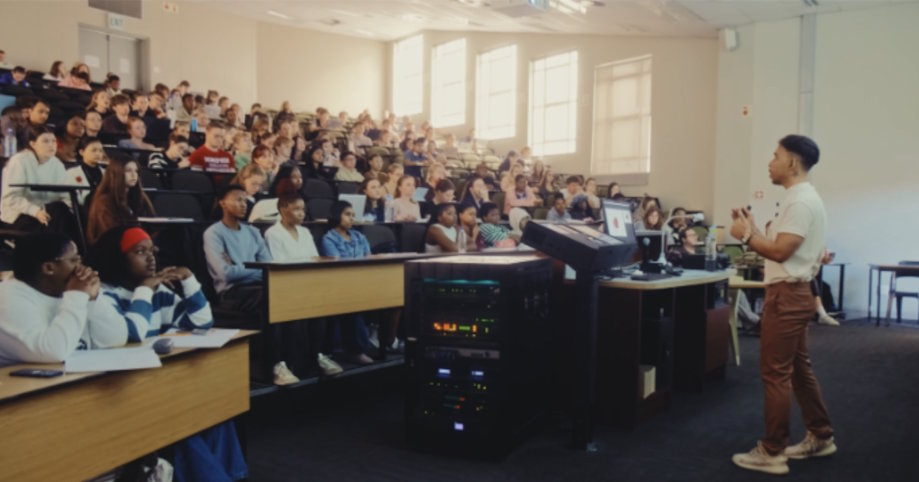
Dr M le Roux teaching a class on Genetics
Looking Ahead
The Department of Genetics, in collaboration with IPBB, continues to be a pillar of excellence in the Faculty of AgriSciences. Its strength lies not in uniformity, but in the diversity of its research areas—from advanced plant biotechnology and molecular ecology to psychiatric genetics and conservation biology.
As the department approaches its 100-year milestone, the legacy of excellence is clearly carried forward by a new generation of researchers building on the foundation laid by their predecessors. Whether through classroom teaching or cutting-edge research, the department’s academics are deeply committed to shaping the future of science—locally and globally.
